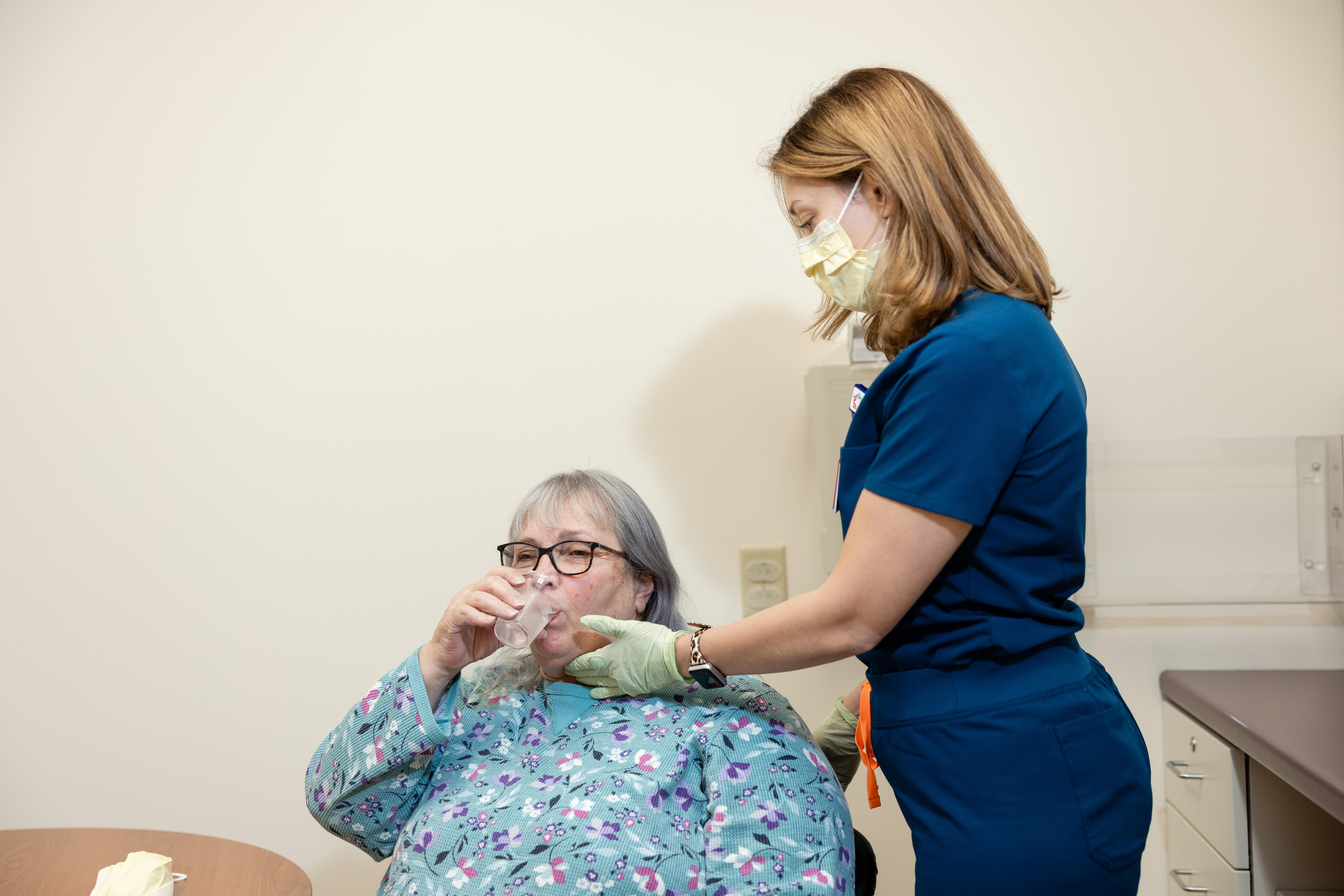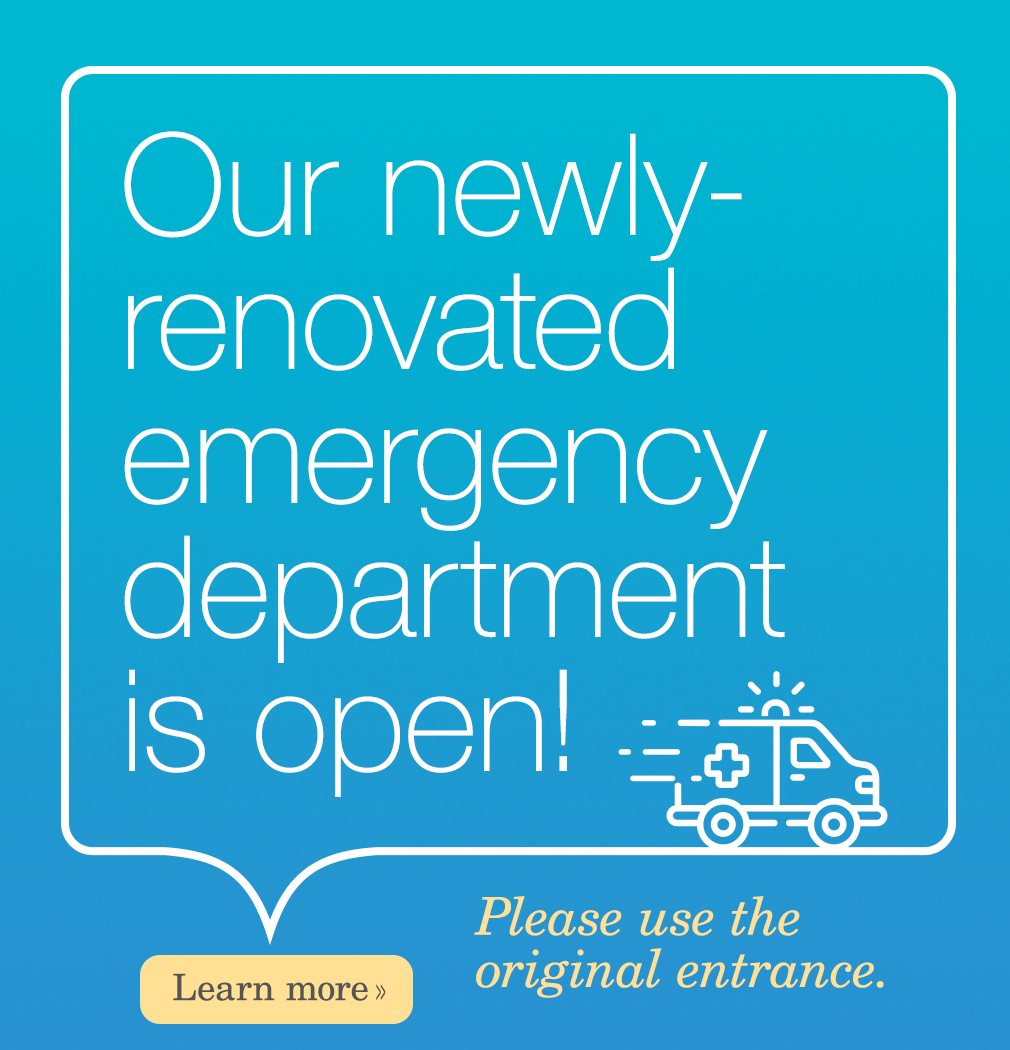

Learning About Swallowing Disorders
Information from NMC’s Speech Language Pathologist Charley Harvell
Dysphagia, pronounced /dys-fay-juh/- is the medical term for difficulty with swallowing.
- Did you know that some 50 pairs of muscles and many nerves work to receive food into the mouth, prepare it, and move it from the mouth to the stomach?
- Dysphagia occurs when there is a problem with the neural control or the structures involved in any part of the swallowing process.
Some common symptoms of dysphagia are:
- coughing or choking when eating or drinking
- bringing food back up, sometimes through the nose
- a sensation that food is stuck in your throat or chest
- persistent drooling of saliva
- being unable to chew food properly
- a gurgly, wet-sounding voice when eating or drinking
- having pain when you swallow.
- having pain or pressure in your chest or have heartburn.
- losing weight because you are not getting enough food or liquid.
What are some of the causes of dysphagia?
- The muscles and nerves that help move food through the throat and esophagus are not working right. This can happen to people with problems with their nervous system, such as: Stroke, Brain Injury, Spinal Cord Injury, Post-Polio Syndrome, Multiple Sclerosis, or Parkinson’s Disease.
- There is swelling, inflammation, spasms and/or weakness from immune system problems such as Scleroderma, a condition in which the tissues of the esophagus become hard and narrow.
- Something is blocking your throat or esophagus. Conditions that can cause this include: Gastroesophageal Reflux Disease (GERD) that, when un-treated, can result in ulcers in the esophagus and scarring, Esophagitis or inflammation of the esophagus, Diverticula or small sacs in the walls of the esophagus or the throat, or Esophageal tumors.
You should see your primary care provider if you, or someone you care for, have difficulty swallowing or any other signs of dysphagia so you can get treatment to help with your symptoms.
Treatment usually depends on the cause and type of dysphagia but might include a referral to speech pathology
How can a speech pathologist help with dysphagia?
Speech pathology evaluations for dysphagia might include:
- A thorough swallowing evaluation in the outpatient clinic
- Flexible Endoscopic Evaluation of Swallowing with Sensory Testing (FEESST), uses a lighted fiberoptic tube, or endoscope, to view the mouth and throat while examining the swallowing mechanism during eating and drinking
- Modified barium swallow study (MBSS) is a test in which a speech pathologist takes a videotaped X-ray of the entire swallowing process by having you consume several foods or liquids along with the mineral barium to improve visibility of the digestive tract
Based on the results from the tests listed above, the speech pathologist will develop a treatment plan which might include the following:
- Exercises for your swallowing muscles to train your muscles to work together to help you swallow.
- Compensation Strategies: You may also need to learn how to position your body or how to put food in your mouth to be able to swallow better.
- Changing the foods you eat. Your speech pathologist may tell you to eat certain foods and liquids to make swallowing easier.
Contact NMC’s Rehab Services Department with questions about swallowing conditions or other speech therapy concerns. Call 802-524-1064.

